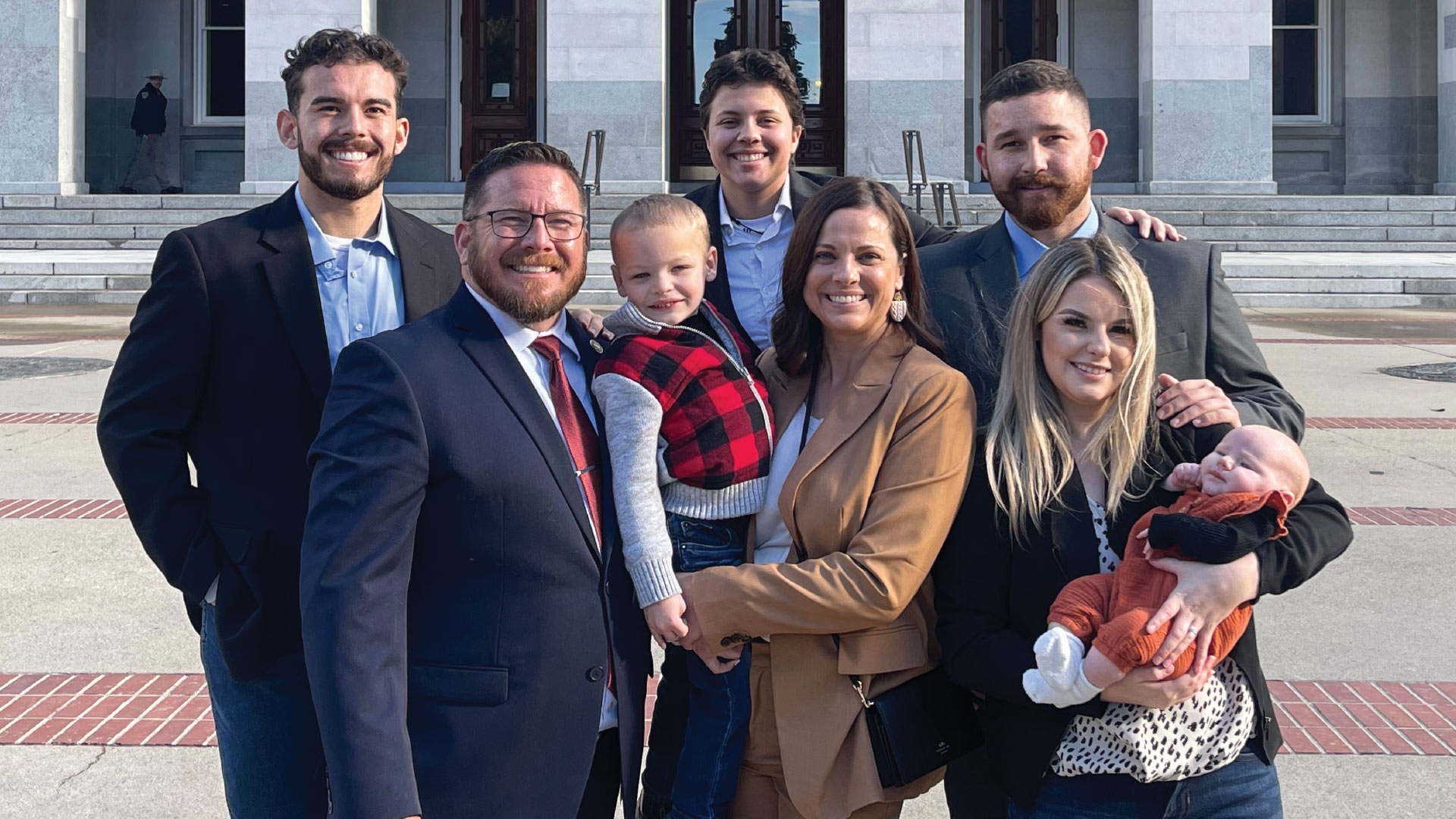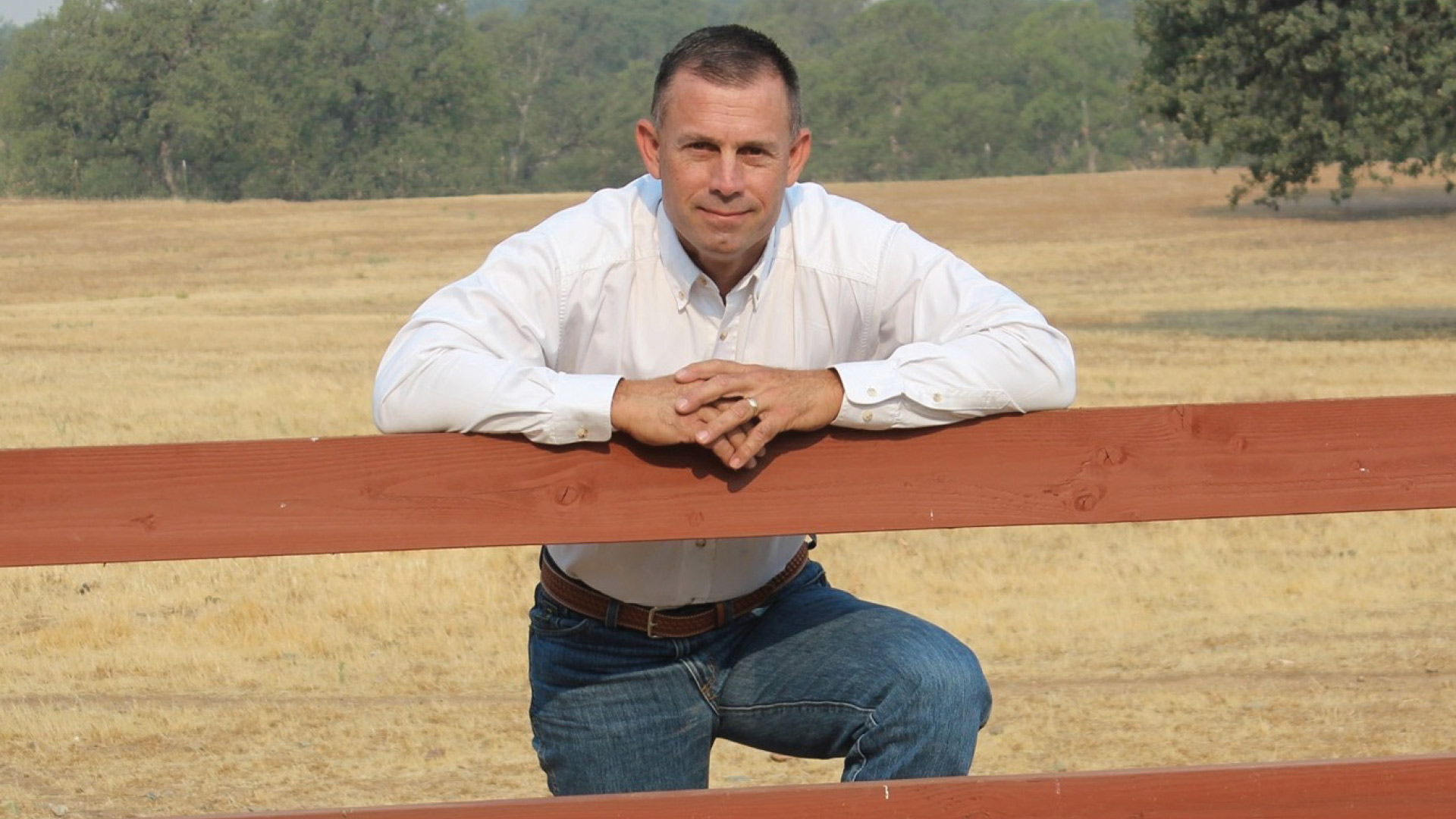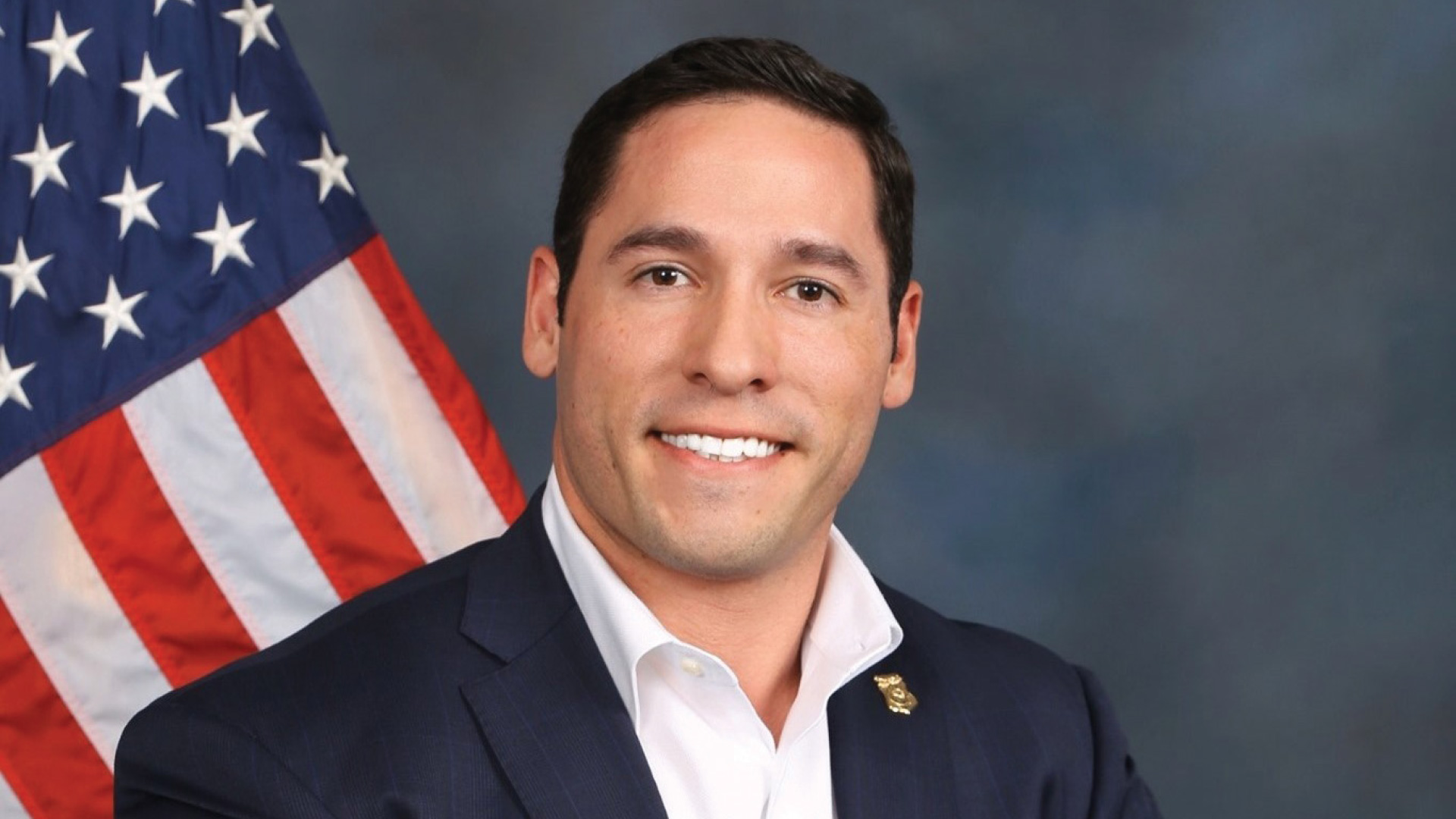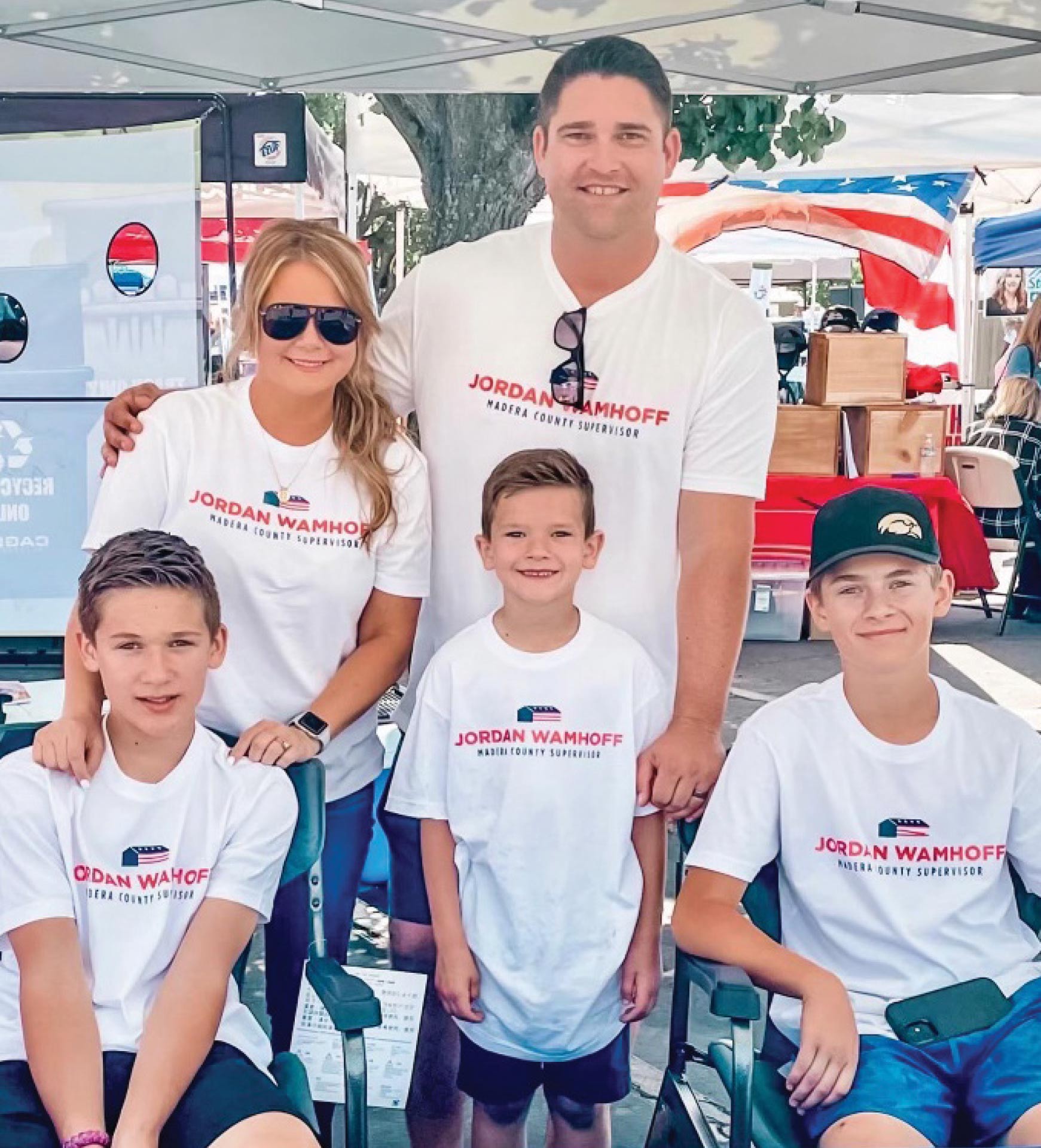Across California and nationwide, more and more peace officers are pivoting into the world of politics to serve, strengthen and protect their communities in a larger capacity. Here, we share the campaign experiences of four law enforcement officers who ran for and won their elections to public office in 2022.
District 22 Assemblymember
Juan Alanis

Juan Alanis was among the 25 new California assemblymembers who were sworn in to office in December. Within minutes of taking his oath, he got straight to work for his 22nd Assembly District constituents, introducing his first two pieces of legislation, AB 17 and ACA 2.
Alanis’ Assembly race marked his second run for public office. In 2018, he had narrowly lost an open race for Stanislaus County sheriff. He had every intention of running for that post again in 2022, but he was approached by current members and staff of the State Assembly to consider running in the newly drawn AD 22. “I was unsure of the decision, but was invited by Assemblymember Heath Flora to come up to Sacramento and learn firsthand what a State Assembly member actually does,” he recalls. “After careful consideration and discussion with my wife and family, I decided I could serve my community in new ways that I had not considered before.”
Alanis ultimately decided to retire from the Stanislaus County Sheriff’s Office five years early at the rank of sergeant and “bring my 28 years of law enforcement experience to the State Capitol and hopefully be a voice of reason where state law is actually made.” His law enforcement experience includes roles as a patrol watch commander, acting police chief, SWAT team member and school resource officer. He is also a member of the Stanislaus County Sheriff’s Supervisors Association and is currently the vice president of PORAC’s Valley Chapter.
Alanis says campaigning in this day and age presented many challenges, such contending with a divisive political climate and balancing the demands of work and family. “Campaigning is not something that I could just take on for myself; it’s something that affects your entire family,” he says, noting that he was lucky to have the support of his wife, Barbara, a large campaign team and his brothers and sisters in blue to help carry him to the finish line.
“PORAC is an extension of my law enforcement family. I was very humbled to have PORAC’s endorsement, and the assistance of PORAC was important to our successful campaign,” he shares. “I look forward to working with PORAC to help make California safer and public safety stronger in the years to come.”
As an assemblymember, Alanis hopes to be a voice of common sense and reason when it comes to crafting policy, and to build relationships and coalitions with likeminded members to accomplish his goals in the Legislature. “Most importantly, my goal is to serve my district to the best of my ability, to be present as much as possible in my district while still working hard in Sacramento,” he adds. “The Central Valley does not have a lot of voices in Sacramento, and I hope to be a champion of the issues my district cares most about. Public safety was a large part of my campaign and clearly my constituents sent me to the Capitol with a mandate to work on public safety issues.”
Alanis encourages those in law enforcement to make the leap into politics because “if we don’t send our own people into high office, we will be left behind. … I believe it is a disservice to our craft and profession to not have experienced peace officers run for office and carry our experience and knowledge into the very halls that make these laws that we have a duty to enforce.”
Tehama County District 4 Supervisor
Matt Hansen

Matt Hansen decided to run for Tehama County District 4 supervisor because he wanted to participate and influence decisions that directly impact the quality of life in his local community in northern California.
“Running for office was intimidating. The incumbent’s roots ran deep in the community, and I was still seen as an outsider even though I have lived in the area for 17 years,” Hansen shares. “I enlisted the help of people equally connected in the community who trusted me and risked their reputations to back me. I worked my campaign from the bottom up, connecting with the people, instead of the top down like my opponent, who relied on his associations with other state and federal legislators.”
Hansen’s strategy proved to be successful, as he received more than 65% of the vote in the June 7 primary. “Winning felt good. It was a team win and a win for the people. It also feels like a great responsibility has been placed on my shoulders (that I am willing to accept) to do things better than the last guy,” he says.
Hansen brings to the role a diverse set of work experiences that include labor in a metal plating shop, feed store, full-service gas station, cattle ranch and the construction industry. He is also a dedicated first responder, with 13 years of service as a volunteer and professional firefighter/paramedic and 27 years of experience as a peace officer.
He started his law enforcement career in 1995 with the San Diego Police Department and currently serves as a lieutenant for the Red Bluff Police Department. He has been a member of the Red Bluff Police Mid-Managers Association since his promotion from sergeant in 2016. “I plan on retiring in July 2023 to focus on my new role as a Tehama County supervisor,” he says.
Hansen’s immediate goals as supervisor are to preserve the county’s local groundwater resources for the benefit of all users, provide the Tehama County Sheriff’s Office with the resources to staff the department and provide professional public safety services, and enhance quality of life by addressing blight and improving economic opportunities for the people of Tehama County.
As a peace officer, Hansen understands that investing in public safety is integral to improving quality-of-life issues. He notes that more cops should consider entering politics because they have not only the skills to do the job, but also firsthand knowledge of the profession that many public officials lack.
“I absolutely believe more peace officers should run for public office. We are not afraid to learn about something we don’t understand and use common sense, based on a foundation of ethics, to solve problems,” he says. “Our profession and the safety of our communities is under attack from those who are uninformed and lack understanding. We have seen the best and worst this world has to offer and consider ourselves defenders of the people. Peace officers don’t have ulterior motives and practice serving the public without prejudice.”
Tarrant County Precinct 4 Commissioner
Manny Ramirez

Manny Ramirez has dedicated his life to bettering his community in North Texas. He is a 15-year veteran with the Fort Worth Police Department and a local businessman, and has been president of the 1,700-member Fort Worth Police Officers Association (FWPOA) for the past five years. In November, locals recognized his commitment to service and elected him to represent them on a larger scale as Tarrant County Precinct 4 commissioner.
“Running for public office was never a predetermined goal or destination of mine,” Ramirez admits. As FWPOA president, he was involved in politics but never had the urge or desire to run for office himself. However, “that changed when I realized that public safety officers were under attack, and that there was a drastic shortage of elected officials willing to stand up and defend them. I recognized that as a police officer, a small business owner and an influential member of my community, I had the responsibility to serve my community in this capacity.”
Throughout his law enforcement career, Ramirez has served as a patrol officer, gang enforcement officer, hostage negotiator, robbery detective and sergeant, and has served in assignments with the Department of Homeland Security’s national gang unit. His knowledge of and experience in the profession helped him identify public safety and border security as top issues in his campaign. It also gave him an edge against his opponents, as he believes “police officers are problem solvers.”
“Police officers are usually not caught up in the polarized political environment of the day; they can usually take an objective look at any decision and act responsibly,” he says. “This type of experience and vision is not common among elected officials today.”
While meeting with thousands of citizens prior to the general election, Ramirez found that many were on the same page as him, “discovering that the vast majority of our citizens just want commonsense, solutions-based leadership.”
Ramirez, who assumed office this month but continues to be a reserve officer with the Fort Worth P.D., says that as a county commissioner, he is the budget and policy authority for a county with more than 2.2 million citizens. “My precinct has more than 600,000 residents, and we are responsible for road and bridge maintenance for more than 160 miles of public roadways. We are also responsible for setting the budget and authorized strength for the district attorney’s office, the sheriff’s office, every judicial office and dozens of other county departments,” he explains. “A main area of focus will be the continued support of public safety in our community and the efficient use of taxpayer resources.”
Ramirez’s advice to peace officers thinking about transitioning to politics is “to ensure that you are experienced, educated and committed to running for office before you make that decision. No two elected offices are the same, and you should make sure that your skill set aligns with the position you are running for.”
Madera County District 1 Supervisor
Jordan Wamhoff

Fresno police officer Jordan Wamhoff has always been intrigued by politics. Shortly after joining the department, he got involved in leadership of the Fresno Police Officers’ Association with an interest toward political action (PAC). In October 2020, he was elected as Fresno POA’s vice president, a full-release position that allowed him to “cultivate political relationships within the city.” The role taught him valuable lessons about developing connections with stakeholders, as well as representing and securing the best pay, benefits and protections for members.
“I have seen firsthand what effective leaders can accomplish, but conversely, I have seen how detrimental ineffective leaders can be to a community,” Wamhoff says. And it’s for that reason that he decided to run for Madera County District 1 supervisor.
Wamhoff describes running a campaign as an “absolute emotional roller coaster,” especially since “I am a very competitive person, so once I jumped in, I couldn’t bear the thought of losing.” He notes that entering the race was the most difficult part, as it takes courage to put one’s name on the ballot. “It’s a certain vulnerability that you can’t fully appreciate until you do it,” he explains. “I made sure I had the support of my wife and family due to the inevitable rigors of the campaign schedule. If you lose that support, it would be very hard to have a successful campaign.”
Throughout the process, Wamhoff received advice from many mentors, hired a consultant and leaned on his supporters, including PORAC, to help him overcome any setbacks and propel his campaign forward.
“As a police officer, it was important to get law enforcement support,” he says. “I had been a regular attendee of the Central California Chapter for several years, and I was pleased that when I put myself up for an endorsement to the chapter, there was no hesitation. It felt really good to get it, but it also meant something when I put the PORAC logo on my flyers, mailers and other forms of media. It carried weight.”
On the campaign trail, Wamhoff knocked on thousands of doors, spoke with thousands of voters and learned what issues were important to the community. This helped him connect with would-be constituents and identify his goals for the position, which include addressing traffic and neighborhood safety, guiding responsible growth and fighting for more water for farmers.
In the June primary, Wamhoff came out on top by only 16 votes. “It shocked a lot of people because I was not the ‘establishment candidate,’ and I was not supposed to win,” he says. That led to a head-to-head contest in the November general election, which he won with 58% of the vote.
Wamhoff’s campaign experience solidified his opinion that peace officers are ideal candidates for public office. “Most communities say that public safety is their number one issue and most politicians say that public safety is their number one priority,” he says. “Although most people say it, it’s another thing to truly understand what it means. Cops know what is effective and what isn’t. Sometimes bureaucrats will take advice from people with agendas, spend lots of money and implement policies and programs with the idea that they are improving public safety, but in reality, they may not.”
